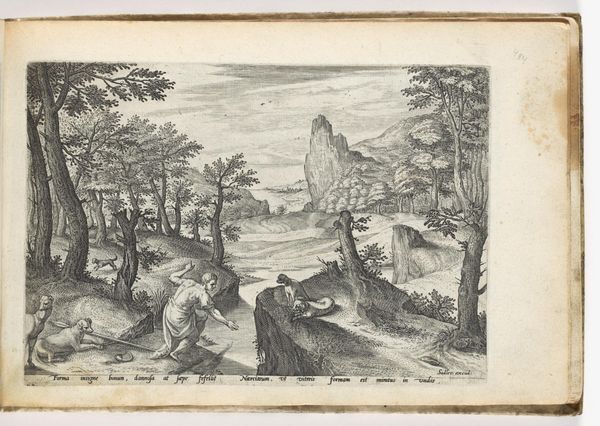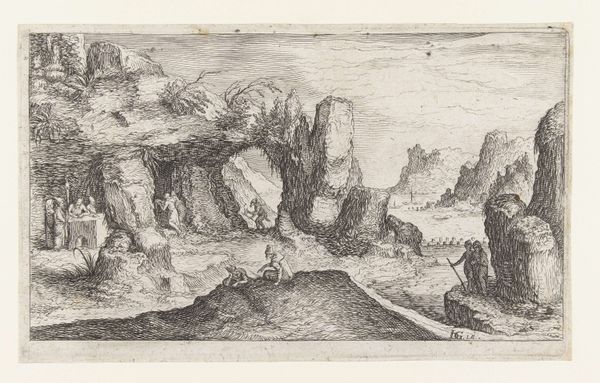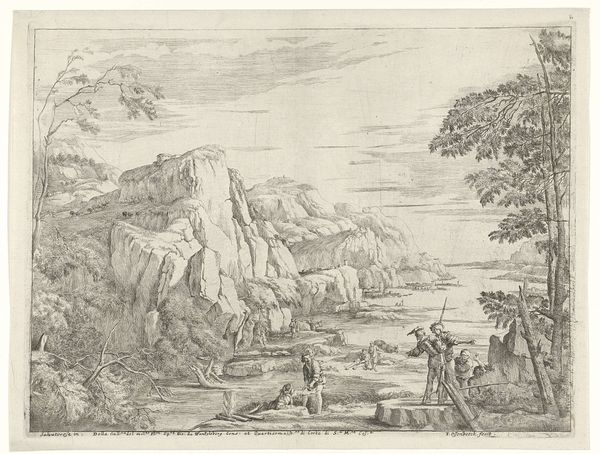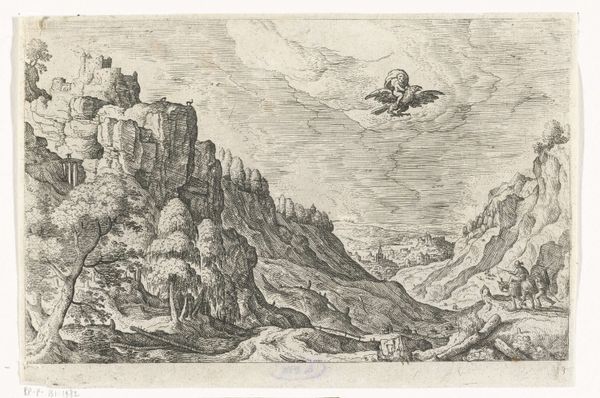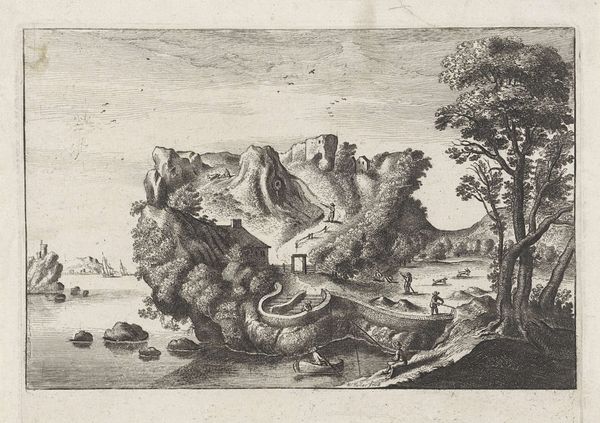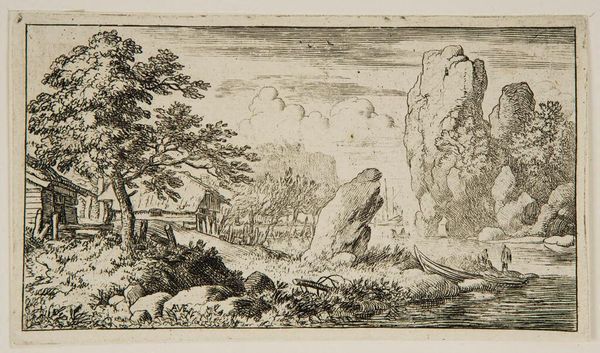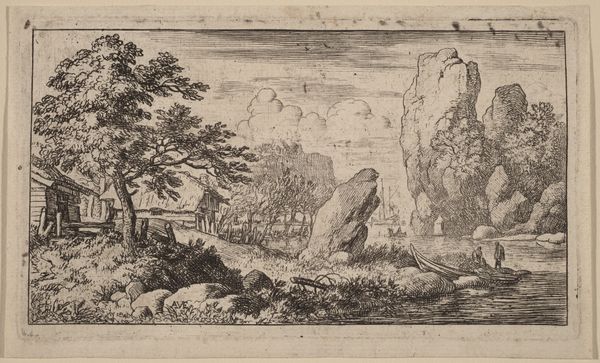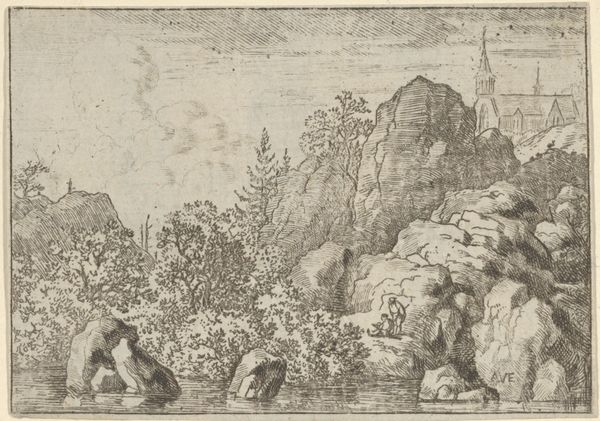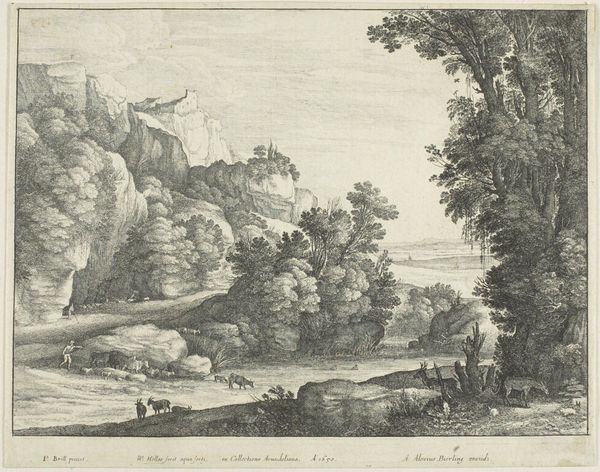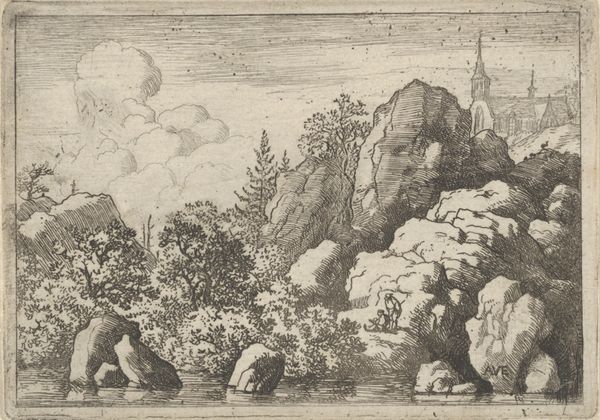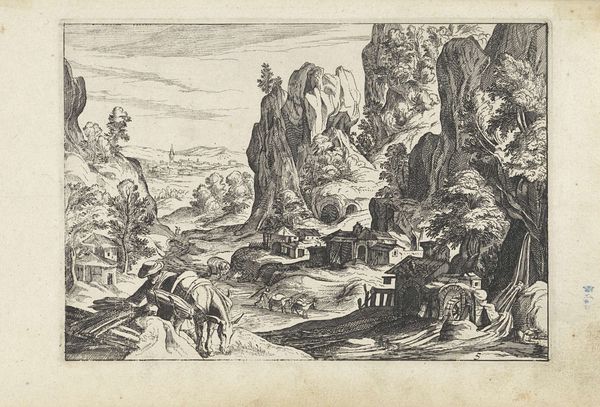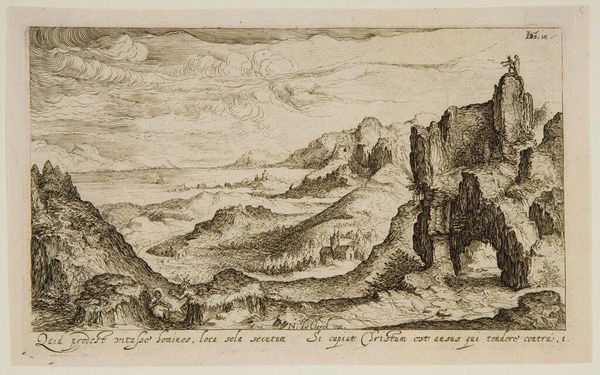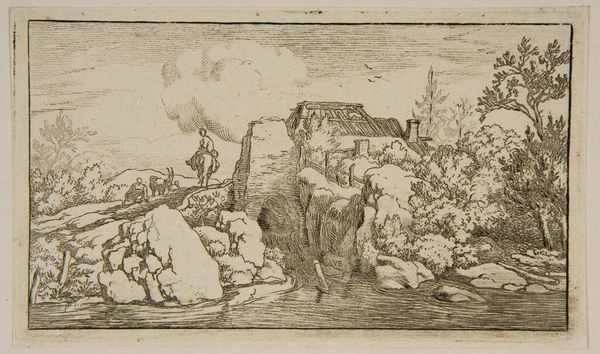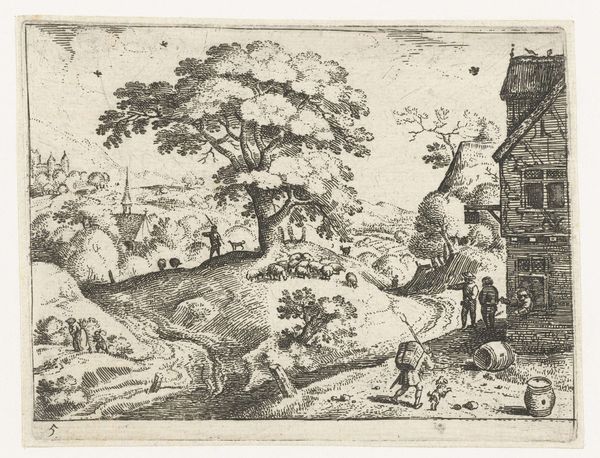
print, engraving
#
quirky sketch
#
baroque
#
mechanical pen drawing
# print
#
pen illustration
#
pen sketch
#
landscape
#
figuration
#
personal sketchbook
#
pen-ink sketch
#
line
#
pen work
#
sketchbook drawing
#
history-painting
#
storyboard and sketchbook work
#
sketchbook art
#
engraving
Dimensions: height 126 mm, width 162 mm
Copyright: Rijks Museum: Open Domain
Editor: This print, "Elia gevoed door raven," made around 1625 by Crispijn van de Passe the Younger, really strikes me. The stark lines of the engraving create a desolate atmosphere, emphasizing the isolation of the figure. What is your take on this work? Curator: It's interesting to consider this engraving through a materialist lens. Let's think about the production. What kind of labor was involved in the making of the paper, the engraving, and the distribution of this image? It speaks to the economics of artmaking. These prints circulated widely; what function did it serve to have Biblical images made more broadly available, more *consumable* than paintings or even illuminated manuscripts? Editor: I see, so you’re interested in how prints like this democratized religious imagery by being easier to make and distribute? It makes you think about who had access to these kinds of images. Curator: Exactly! Also, let’s consider the subject matter. Elijah is being fed by ravens – divine provision in a time of scarcity. But whose scarcity? Understanding the specific historical moment when van de Passe made this informs the way we interpret the image's statement about class. Think about how representations of divine aid function in a society stratified by wealth. Is the image simply reinforcing established hierarchies, or are viewers invited to reconsider their places within it? Editor: That makes a lot of sense. The materiality and accessibility influence who gets to see the image and the meaning they take away from it. Curator: Precisely. Analyzing its means of production allows us to challenge notions of divine intervention and consumption. Material circumstances shape the narratives we inherit. Editor: This really opens my eyes to the importance of context. Thanks!
Comments
No comments
Be the first to comment and join the conversation on the ultimate creative platform.
